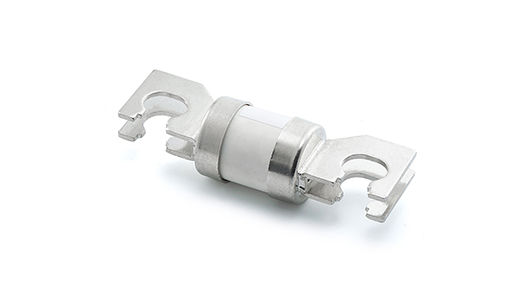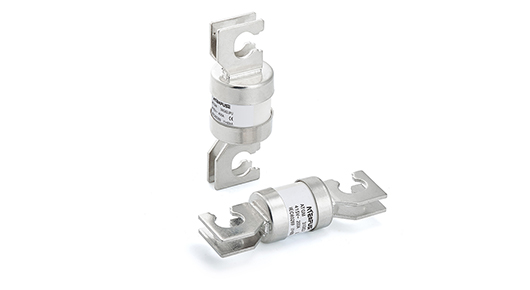Can an AC fuse be used for DC?
No such thing as an "AC fuse", nor a "DC fuse". All are rated in amps. If you need a 1 amp fuse; it will work to limit current to one amp; RMS Ac or straight DC.
Note; they Also say voltage, but not ”dc” or ”ac”. This is RMS. Do not use a fuse rated for 110V on 110VAC as the peak is higher. Use a 250 V for safety, insulation, as 110VAC will peak at 155 volts.
Fuses should work on both AC and DC, in principle they work the same in either case, heating of the element to the melting. Fusing point should be pretty much independent of AC or DC.
Are AC and DC fuses the same?
Fuses should work on both AC and DC, in principle they work the same in either case, heating of the element to the melting. fusing point should be pretty much independent of AC or DC.
However, for reasons Kevin Baker outlined, that is that DC can continue flowing in the plasma of an evaporated fused element at high voltages where as AC will always be stopped after one cycle when the current goes to zero, Fuses that can be used for AC and DC will have different ACV and DCV interruption ratings. AC will always hive higher voltage ratings.
For that reason there will be some fuses designed especially for high voltage DC interruption use, with means to interrupt or minimize the plasma that may occur. I know they exist, but I do not have any experience using them.
In most cases, the difference is not important if your applied voltage is much less than the fuse ratings.
What is the difference between an AC fuse and a DC fuse?
First dc is continuous, ac goes to zero volts each cycle. This important because when you blow a fuse with dc, a plasma can form and continue conducting current, ac will to, but when the cycle crosses zero volts, the plasma dies and the circuit is open.
So the dc fuse will have a larger gap area to help extinguish the plasma arc.
Are DC fuses and AC fuses interchangeable?
No, they are not interchangeable.
Remember, the point of a fuse is to interrupt the flow of overcurrent. A metallic element within the fuse will melt when exposed to an overcurrent condition for the requisite amount of time. Think of a fuse as a low-value resistor connecting two points of a circuit. When the fuse element melts, you are left with an open-circuit condition. But, not so fast! Electrical arcs can occur between the open-circuit elements and allow for the dangerous conditions we are trying to protect against.
With AC power , the current is shifting in polarity in a sinusoidal fashion 100+ times every second. When this polarity shift occurs, there is a brief point in time when the magnitude of the AC current is zero. Because of this zero-crossing, AC arcs are easy to mitigate as they are self-extinguishing. With DC power, this zero-crossing never occurs and electrical arcs may persist to the point of causing significant damage/harm. To combat this, DC fuses have their electrodes gapped larger and may be constructed of additional materials to suppress arcs such as silica.
With all that said, this assumes the questions is asking about one to one substitution. Individual fuses will have ratings for AC/DC based on their construction. You may find, for example, a 500VAC-rated fuse that also carries a 300VDC rating.





